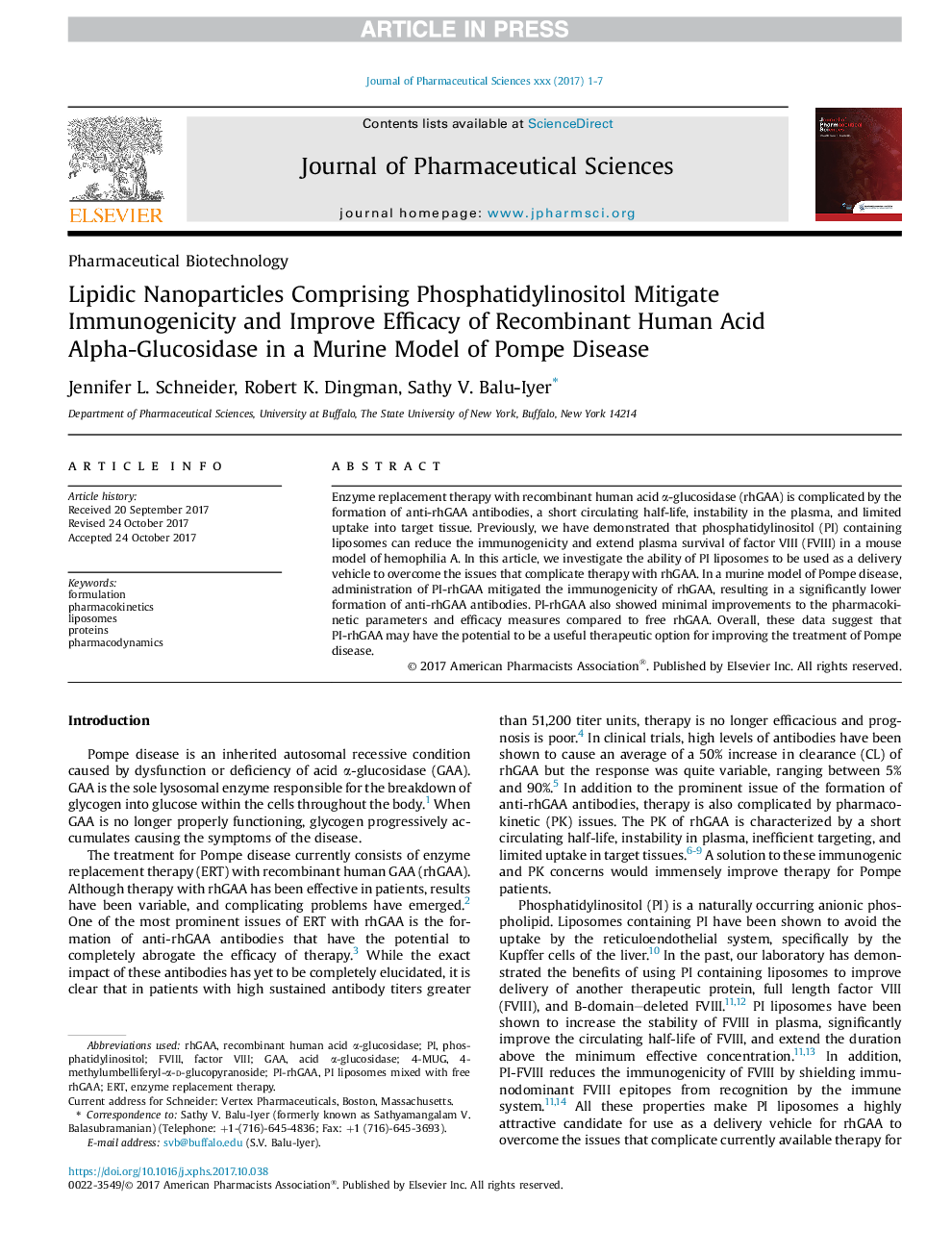| Article ID | Journal | Published Year | Pages | File Type |
|---|---|---|---|---|
| 8513400 | Journal of Pharmaceutical Sciences | 2018 | 7 Pages |
Abstract
Enzyme replacement therapy with recombinant human acid α-glucosidase (rhGAA) is complicated by the formation of anti-rhGAA antibodies, a short circulating half-life, instability in the plasma, and limited uptake into target tissue. Previously, we have demonstrated that phosphatidylinositol (PI) containing liposomes can reduce the immunogenicity and extend plasma survival of factor VIII (FVIII) in a mouse model of hemophilia A. In this article, we investigate the ability of PI liposomes to be used as a delivery vehicle to overcome the issues that complicate therapy with rhGAA. In a murine model of Pompe disease, administration of PI-rhGAA mitigated the immunogenicity of rhGAA, resulting in a significantly lower formation of anti-rhGAA antibodies. PI-rhGAA also showed minimal improvements to the pharmacokinetic parameters and efficacy measures compared to free rhGAA. Overall, these data suggest that PI-rhGAA may have the potential to be a useful therapeutic option for improving the treatment of Pompe disease.
Keywords
Related Topics
Health Sciences
Pharmacology, Toxicology and Pharmaceutical Science
Drug Discovery
Authors
Jennifer L. Schneider, Robert K. Dingman, Sathy V. Balu-Iyer,
